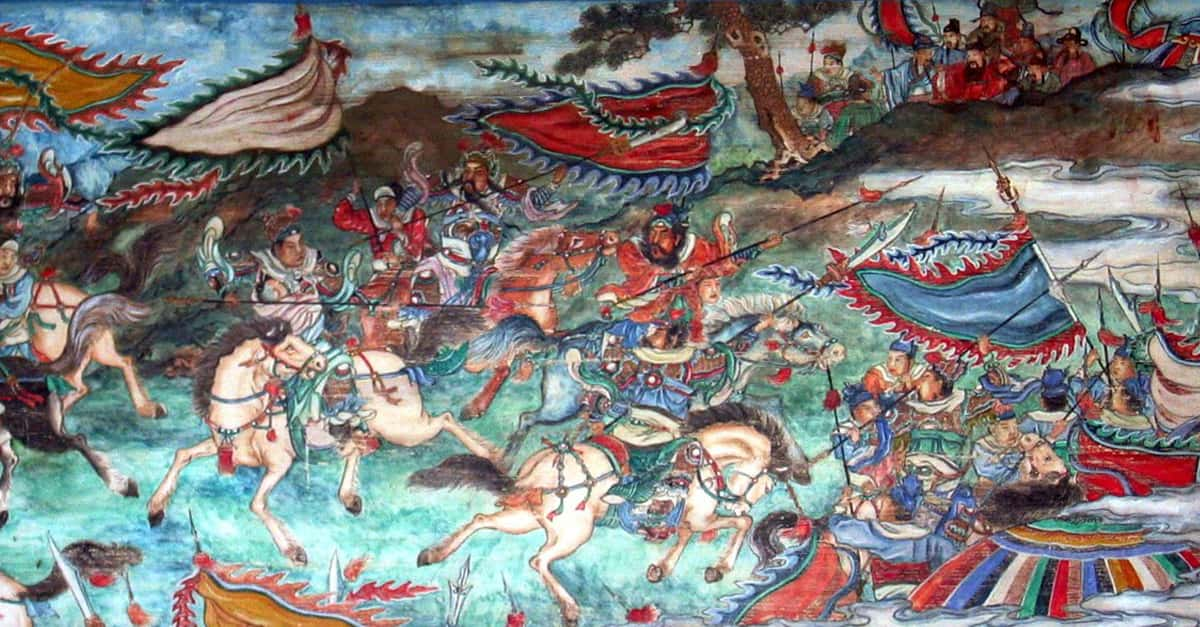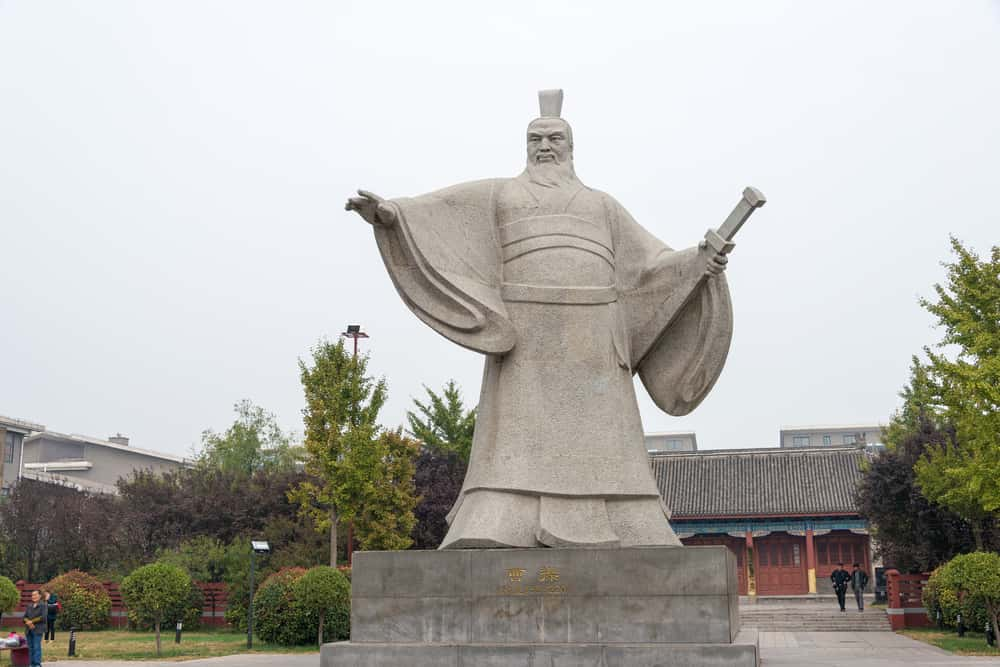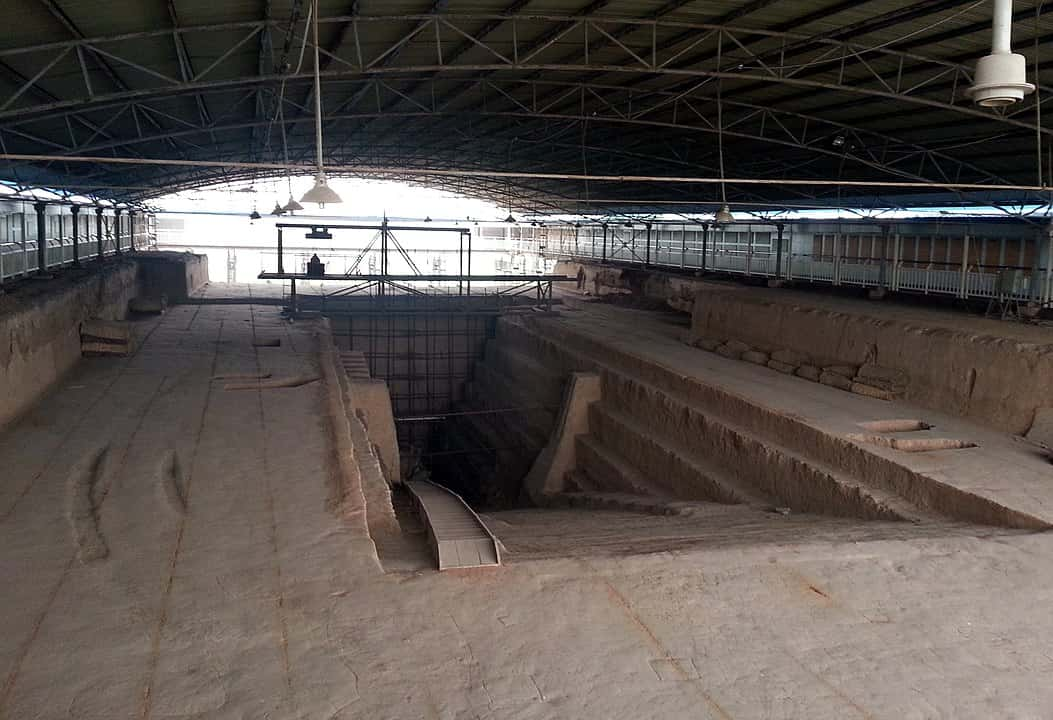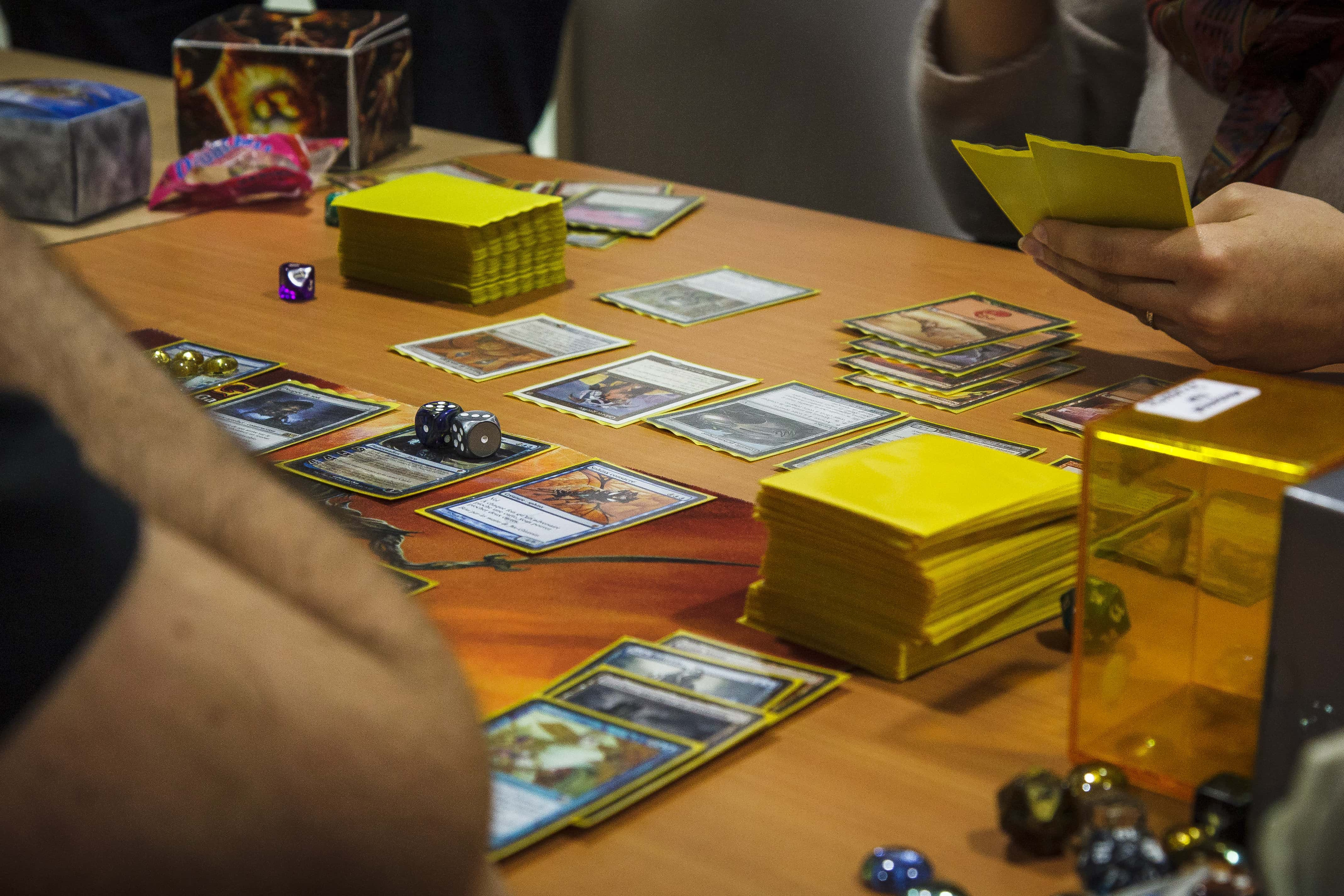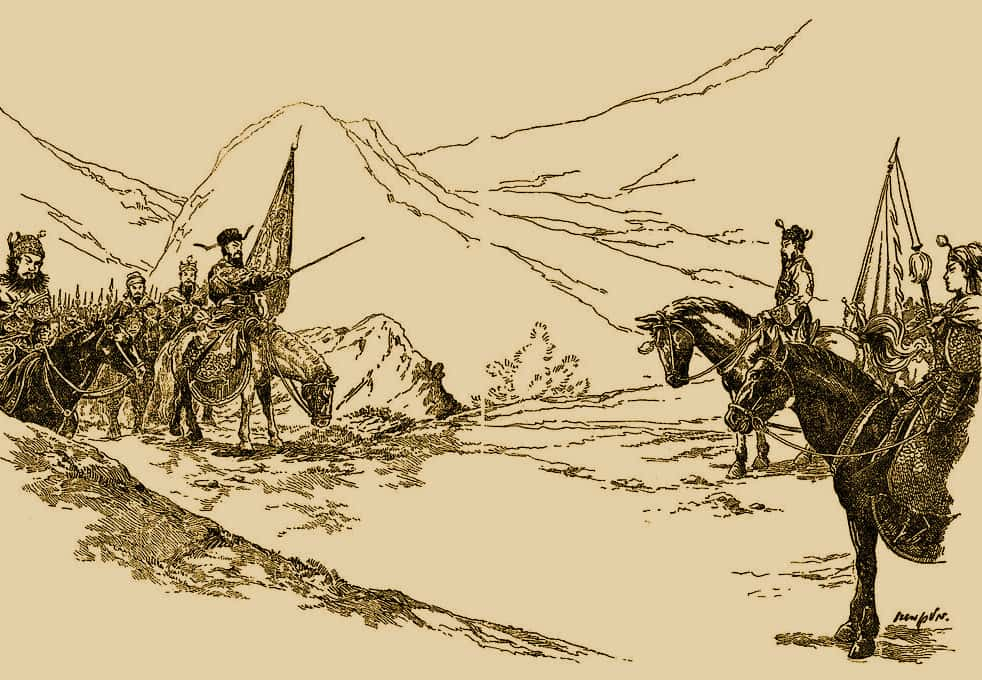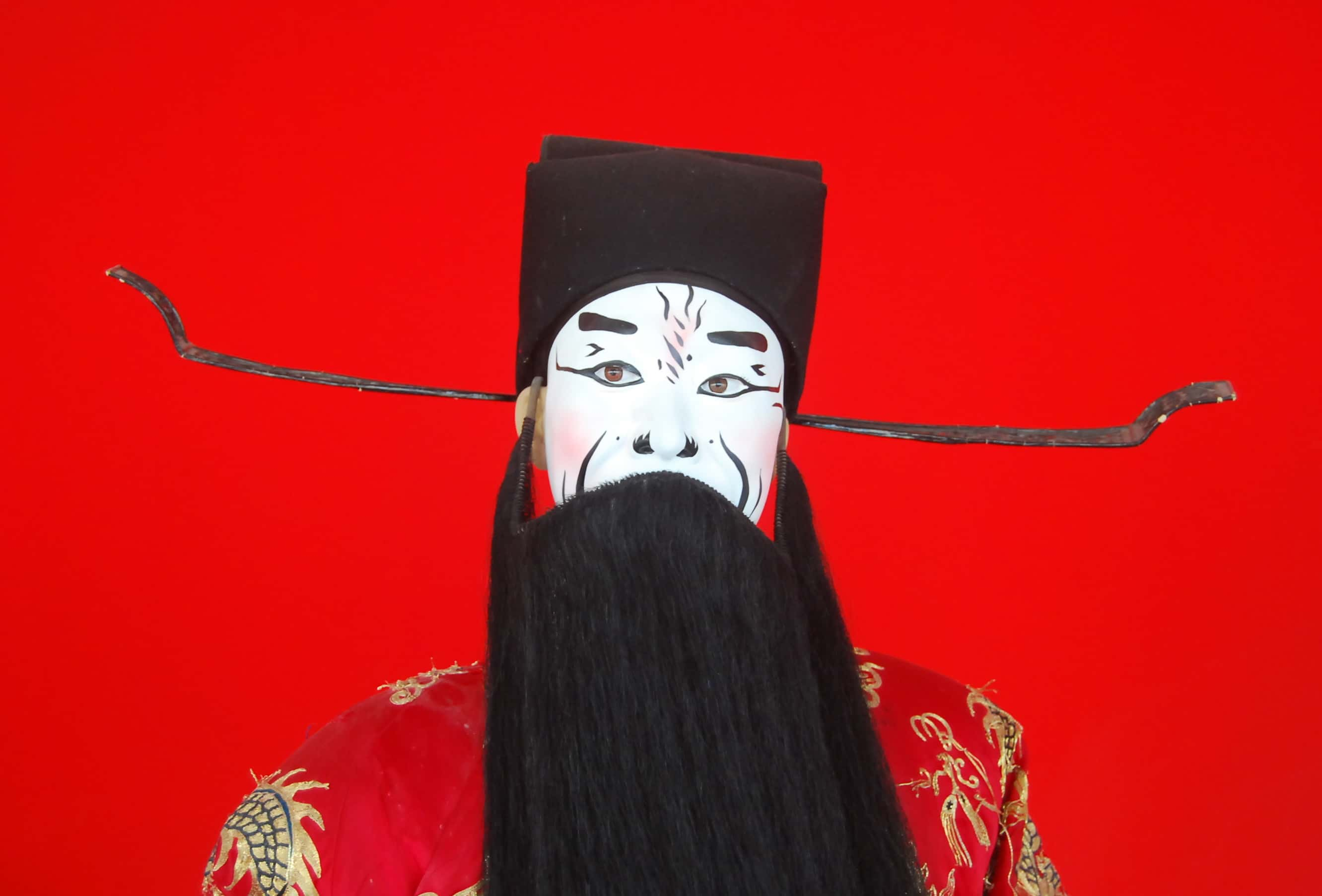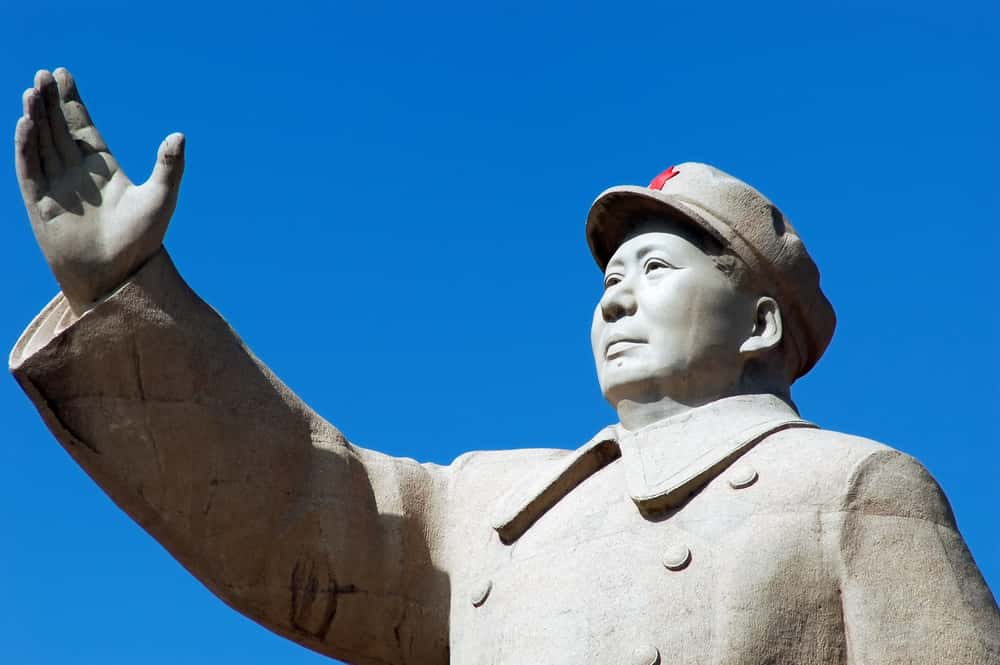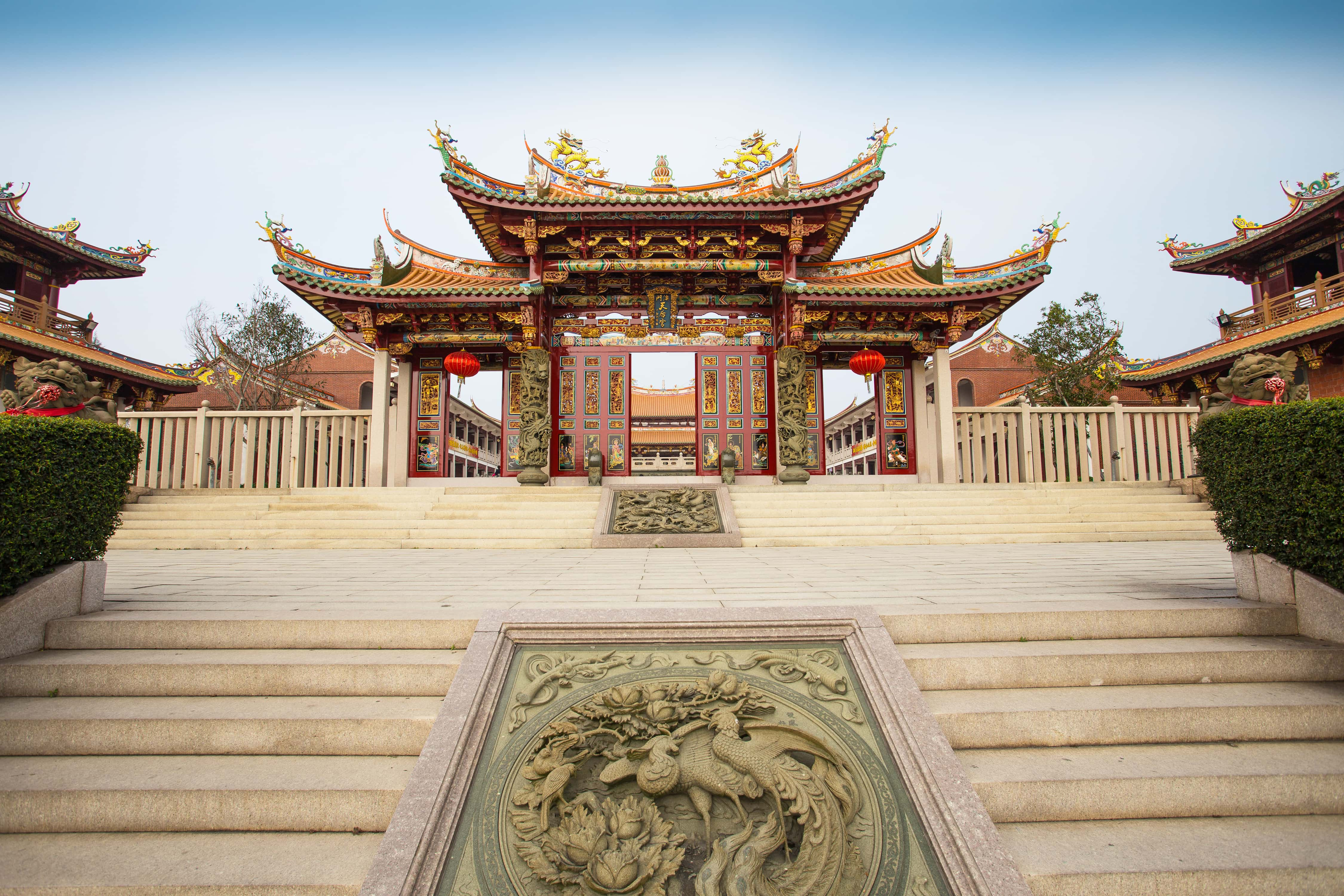Cao Cao was one of the most capable generals of ancient China. Rising to power during the waning days of the Han Dynasty, he sought to unite the disparate provinces of the country, instituting important educational and agricultural reforms in the process. The years have not been kind to Cao Cao, however: frequent depictions of Cao as a conniving warlord in novels and operas have colored modern perceptions of the man who would eventually become Emperor Wu of Wei. Here are 42 misunderstood facts about Cao Cao.
1. Lost to History
Cao Cao was born in what is now Bozhou, Anhui, China, in 155 CE. His father, Cao Song, a high-ranking official in the Eastern Han Dynasty, served as Minister of Finance under Emperor Ling and eventually became Grand Commandant. Cao Song was the adopted son of Cao Teng, a eunuch who served yet another emperor, but Cao Teng's origins are a mystery.
2. Least Likely to Succeed
Cao Cao had what we would probably call a “misspent youth.” He ignored his studies and responsibilities in favor of hunting and playing music with his friends. As a young man, Cao Cao paid a visit to Xu Shao, a man renowned for his abilities as a judge of character, and asked for an assessment; yet Xu Shao refused to respond.
When Cao Cao finally convinced him to present his judgement, Xu Shao was blunt: “You would be a capable minister in peace, and an unscrupulous hero in chaotic times.” Cao Cao laughed off the prediction, for better or for worse...
 Cao Cao (2014), Emperor Entertainment Group
Cao Cao (2014), Emperor Entertainment Group
3. Rules Are Rules
In spite of Cao Cao’s doubts about his future, he gained the post of district captain of Luoyang in 175. Though he was just 20 years old, he soon proved to be a strict but fair-minded custodian of the police. He once had the relative of a high-ranking official flogged for breaking the city curfew, when many others would have let such a powerful man go without punishment.
His commitment to the rule of law earned Cao a promotion to county governor.
 Cao Cao (2014), Emperor Entertainment Group
Cao Cao (2014), Emperor Entertainment Group
4. She Wore a Yellow Turban
In 184, the peasants revolted in what became known as the Yellow Turban Rebellion. In these trying times, the military appointed Cao as Captain of the Cavalry. Though he succeeded in ending the rebellion, his vicious persecution of religious minorities offended many prominent families. Instead of accepting a promotion, he retired in fear of reprisals against his family.
 Cao Cao (2014), Emperor Entertainment Group
Cao Cao (2014), Emperor Entertainment Group
5. The Missing Ling
The military coaxed Cao Cao out of retirement less than two years later, with a promotion to Colonel Who Arranges the Army. His return coincided with the death of Emperor Ling, an event which would throw the imperial government into turmoil.
 Cao Cao (2014), Emperor Entertainment Group
Cao Cao (2014), Emperor Entertainment Group
6. Hostile Takeover
Emperor Ling's son Shao succeeded him—at least in name. In reality, Empress Dowager He and a team of influential eunuchs controlled the court. Hoping to rid the court of these eunuchs, the Empress’s brother allied himself with a general named Dong Zhou. Dong Zhou ousted not just the eunuchs, but the Empress Dowager and the Emperor, as well, and installed a puppet, Emperor Xian, on the throne.
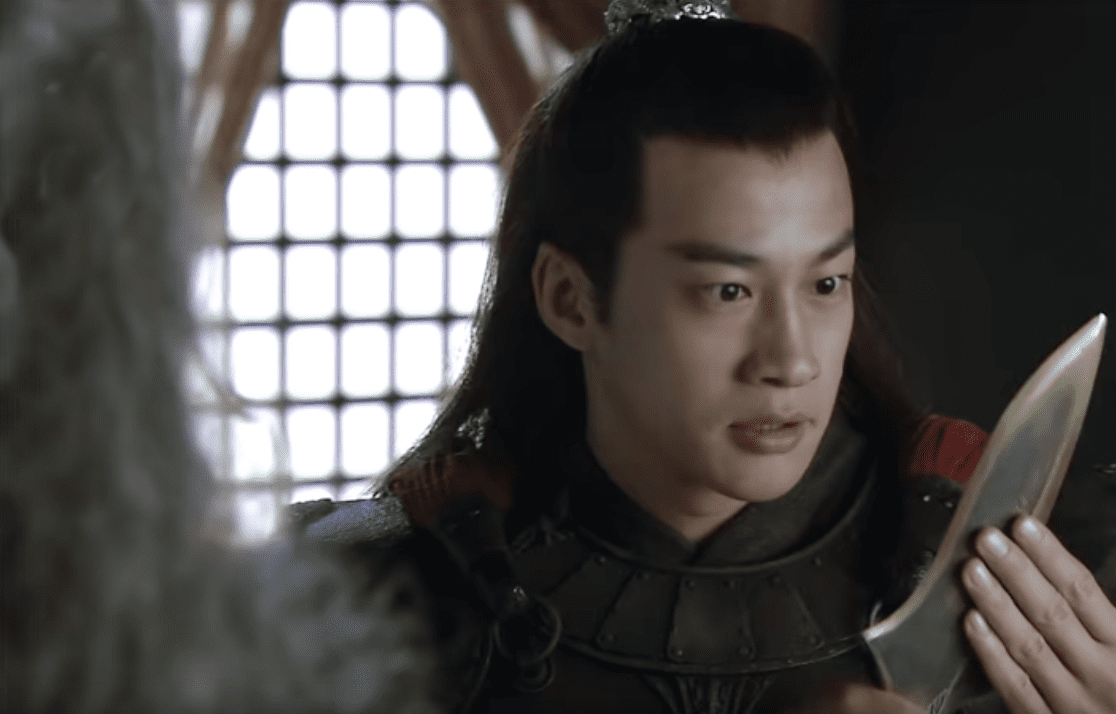 Three Kingdoms (2010), Beijing Gallop Horse Film & TV Production
Three Kingdoms (2010), Beijing Gallop Horse Film & TV Production
7. He’s a Rebel
Dong Zhou offered Cao Cao a position in the new army, but he declined. Instead, he traveled to Chenliu, where he organized a resistance army. Cao and his allies to manage to chase Dong Zhou from the court, but the general took Emperor Xian with him. With no emperor on the throne, the country tumbled into a full-blown civil war.
 Cao Cao (2014), Emperor Entertainment Group
Cao Cao (2014), Emperor Entertainment Group
8. Baby Steps
While all of eastern China was in upheaval, Cao Cao preferred to focus on smaller problems. Leading his own small army, he cleared several small territories of bandits, impressing the ruling governors and gradually earning titles for himself. By 192, Cao had been declared governor of Yan Province.
 Cao Cao (2014), Emperor Entertainment Group
Cao Cao (2014), Emperor Entertainment Group
9. Untangling Those Roots
Legends told that Cao Cao descended from Western Han chancellor Cao Shen. However, DNA taken from a tooth belonging to Cao Cao’s uncle, Cao Ding, has shown that to be extremely unlikely. Yet, that same DNA test did prove the lineage of several of Cao Cao’s living descendants, more than 100 generations after Cao Cao’s death.
 Cao Cao (2014), Emperor Entertainment Group
Cao Cao (2014), Emperor Entertainment Group

History's most fascinating stories and darkest secrets, delivered to your inbox daily.
10. Tomb Raiders
On December 27, 2009, the Henan Provincial Cultural Heritage Bureau announced the discovery of Cao Cao’s mausoleum. The tomb was found in Xigaoxoue Village in Anyang City, Henan Province, by workers as they dug mud to make bricks at a nearby kiln. Cao Cao’s mausoleum was listed as a Major Historical Site Protected at the National Level in 2013, but has yet to be opened to the public.
11. Caught Red Handed
The brickmakers did not report the find, and archaeologists may have overlooked it had authorities not caught two grave robbers with a stone tablet inscribed with the title “King Wu of Wei.” Archaeologists retrieved more than 400 artifacts from the tomb, including weapons, paintings, and Cao Cao’s pillow.
12. No Body Home
Shortly after, archaeologists found a second tomb near that of Cao Cao. It contained clothes, but no human remains. Archaeologists believe this tomb may have belonged to Cao Cao’s son, Cao Ang, whose body was never found after the Battle of Wancheng in 199 CE.
13. Tomb for Debate
Though the State Administration of Cultural Heritage endorsed the find, scholars have debated the proper ownership of the tomb. Some have suggested that the site has been tampered with by grave robbers, and that the stone tablets identifying the tomb as that of Cao Cao may be inauthentic; others have argued that the site is rightfully attributed to Cao Huan—Cao Cao’s grandson.
The Chinese government is satisfied that this is Cao Cao’s mausoleum, but the truth is we may never know for sure.
 Cao Cao (2014), Emperor Entertainment Group
Cao Cao (2014), Emperor Entertainment Group
14. Father of the Year
Cao Cao had more children than you could shake a stick at, and more than 30 of them survived him.
 Cao Cao (2014), Emperor Entertainment Group
Cao Cao (2014), Emperor Entertainment Group
15. Magic Man
Cao Cao has his own Magic: The Gathering card. Wizards of the Coast first released “Cao Cao, Lord of the Wei” as part of Portal Three Kingdoms set, and again as part of the From the Vault: Legends set.
16. End Game
The build-up to the Battle of Yan Province lasted for more than 100 days as Cao Cao tried to oust the ruthless warlord Lü Bu. When he finally cornered Lü Bu in the city Puyang, Cao Cao burned the gates of the city to show that he meant business. Despite the theatrics, Lü Bu's forces defeated Cao Cao’s army and the latter was forced to flee.
 Cao Cao (2014), Emperor Entertainment Group
Cao Cao (2014), Emperor Entertainment Group
17. The Enemy of My Enemy
Once he had recovered, Lü Bu turned against the governor of Xu Province who had granted him refuge. This caused an unlikely alliance when Cao Cao teamed up with his nemesis, Xu general Liu Bei, to stop Lü Bu once and for all. Together, they defeated Lü Bu at the Battle of Xiapi; and this time, they put Lü Bu to death.
18. Your Place or Mine?
By this point, Emperor Xian had returned to the throne. In 196, he invited Cao Cao to join him in Luoyang. Cao Cao had a better idea: he invited the emperor to move the capital from Luoyang to his own stronghold at Xu City. Not only did Xian agree, he appointed Cao to a host of positions, including Minister of Works, Director of Retainers, and General in Chief.
Cao Cao was now among the most powerful men in China.
 Cao Cao (2014), Emperor Entertainment Group
Cao Cao (2014), Emperor Entertainment Group
19. Settling Old Business
Cao Cao used his newfound power to incorporate still more territory into his sphere of influence. He feuded with warlords in Jing Province toward the south and finally seized control of Xu Province.
 Cao Cao (2014), Emperor Entertainment Group
Cao Cao (2014), Emperor Entertainment Group
20. Yu Complete Me
Now, Cao Cao turned his attention to Yu Province, which was then in the hands of an old adversary, Yuan Shu. Shu had declared himself Emperor of Zhong, but died as Cao’s armies were en route toward Yu Province. Cao’s forces marched into the province unopposed.
 Red Cliff (2008), China Film Group Corporation (CFGC)
Red Cliff (2008), China Film Group Corporation (CFGC)
21. Xu Again!
In 199, Liu Bei betrayed Cao Cao and, once again, seized control of Xu Province. Cao then defeated Liu Bei easily, but Liu Bei recruited the help of Cao’s one-time ally Yuan Shao. Cao was soon in open war with the entire Yuan Clan, one of the most powerful in all of China.
 Red Cliff (2008), China Film Group Corporation (CFGC)
Red Cliff (2008), China Film Group Corporation (CFGC)
22. The King in the North
Yuan Shao passed away in 202, naming his youngest son as his successor. The ensuing fight between Yuan Shao’s sons gave Cao Cao the upper hand in the conflict. As he defeated the Yuan, several provinces defected to Cao’s army. In rapid succession, Cao gained control of Bing, Ji, Qing, and You provinces. Cao now held dominion throughout the north.
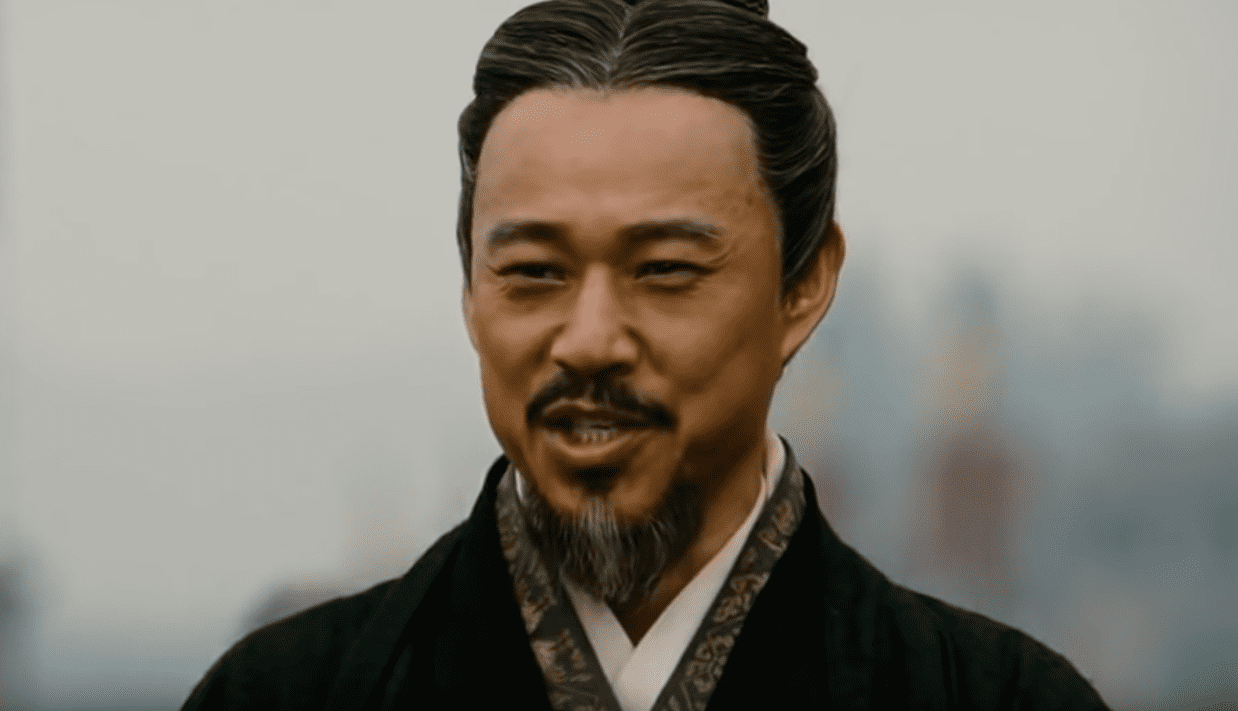 Red Cliff (2008), China Film Group Corporation (CFGC)
Red Cliff (2008), China Film Group Corporation (CFGC)
23. We the North
Cao was not as successful in the south. He suffered a series of defeats throughout Jing Province, including one at the hands of his greatest enemy, Liu Bei. Unable to make headway, Cao decided to concentrate on keeping control of his northern territories.
 Cao Cao (2014), Emperor Entertainment Group
Cao Cao (2014), Emperor Entertainment Group
24. A Fine Romance
Cao Cao is a central character in Romance of the Three Kingdoms, one of the most important works of Chinese literature. The novel, written by Luo Guanzhong in the 14th century, tells a romanticized version of the fall of the Han Dynasty, beginning with the Yellow Turban Rebellion. With over 1,000 characters engaged in all matter of warfare and political intrigue, it was kind of the Game of Thrones of its day.
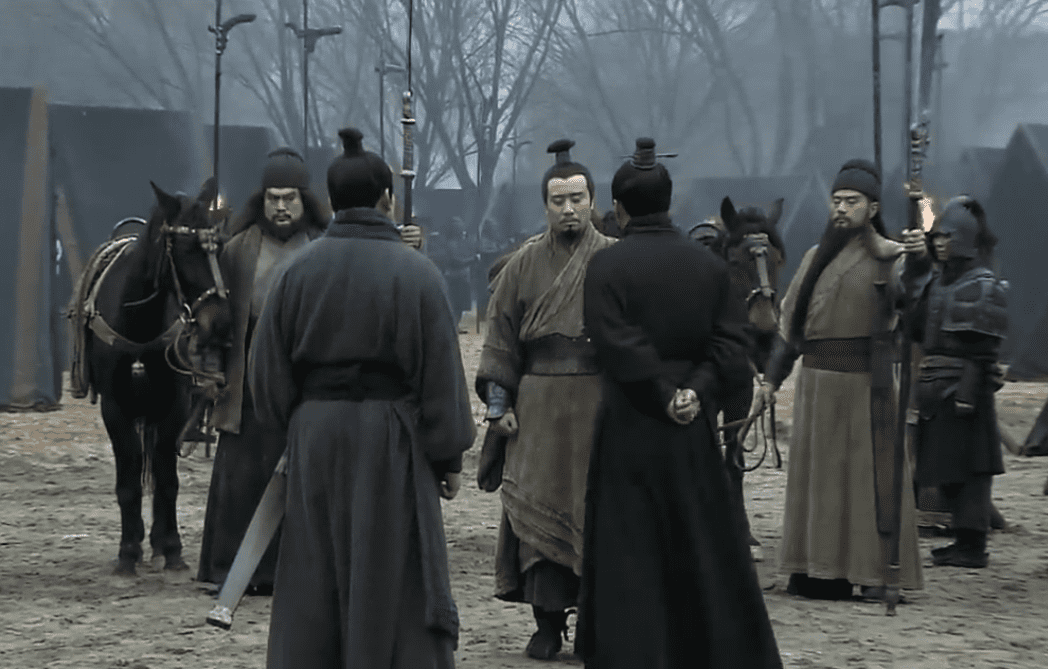 Three Kingdoms (2010), Beijing Gallop Horse Film & TV Production
Three Kingdoms (2010), Beijing Gallop Horse Film & TV Production
25. Big Bad
If Romance of the Three Kingdoms is Game of the Thrones, Cao Cao is a cross between Cersei Lannister and the Night King: an unstoppable, merciless force sweeping across the countryside, willing to do anything in his quest for power. However, scholars agree that his depiction in the novel is historically inaccurate and that writers tailored his character to suit the political attitudes of the Ming Dynasty, who ruled at the time the book was written.
 Three Kingdoms (2010), Beijing Gallop Horse Film & TV Production
Three Kingdoms (2010), Beijing Gallop Horse Film & TV Production
26. Here Comes Trouble
Because of his depiction in legends, novels, and operas, Cao Cao is often unfairly remembered as a deceitful tyrant. For evidence of Cao’s bad reputation, consider this: the Chinese have an equivalent of the phrase “Speak of the devil and the devil will appear.” In fact, it’s almost identical, except the Chinese version goes, “Speak of Cao Cao, and Cao Cao arrives.”
27. A Promise is a Promise
Despite his depiction as a scheming, power-hungry villain, Cao Cao made—and kept—a personal vow to never usurp the throne of the emperor.
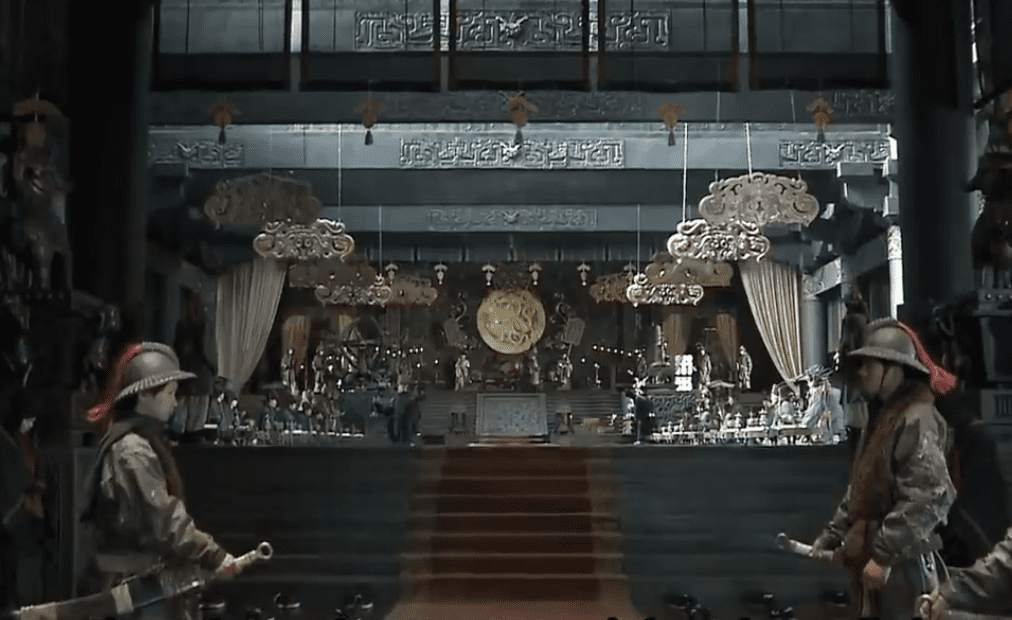 Three Kingdoms (2010), Beijing Gallop Horse Film & TV Production
Three Kingdoms (2010), Beijing Gallop Horse Film & TV Production
28. Chairman Cao
During the Chinese Civil War, Mao Zedong was frequently compared to Cao Cao. Rather than damage Mao’s reputation, however, propagandists rehabilitated Cao’s reputation to make the comparison more favorable.
29. Roses are Red…
Cao Cao wasn’t just a warlord, he was also a poet, and a pretty good one, at that. He based his poetry in part on Han folksongs, and he often set his poems to music. With his delicate meters and unpretentious language, Cao influenced much of the poetry written during the Tang Dynasty. His sons, Cao Pi and Cao Zhi, were successful poets as well: together, they are known in poetry circles as “the Three Caos.”
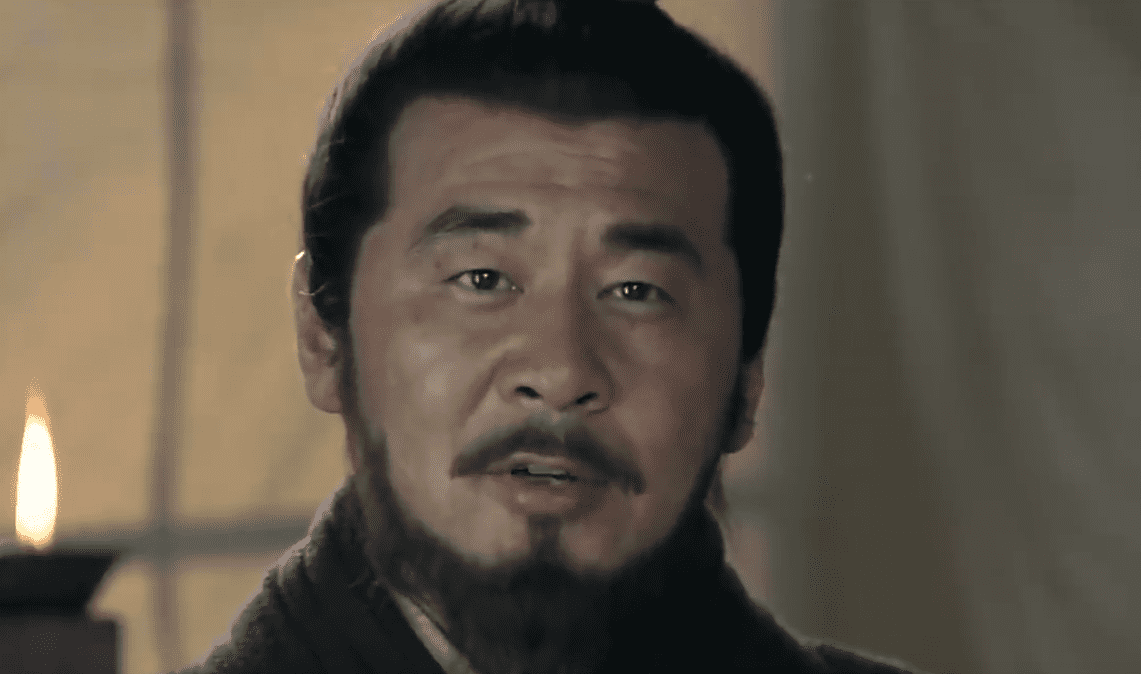 Three Kingdoms (2010), Beijing Gallop Horse Film & TV Production
Three Kingdoms (2010), Beijing Gallop Horse Film & TV Production
30. Down on the Farm
Despite his constant preoccupation with war, Cao Cao was instrumental in developing China’s agricultural system. Cao had learned from Lü Bu’s failures during the occupation of Yan, and understood that a lack of food would not only hinder his army, but would discourage civilians as well. To help keep the pantry stocked, Cao granted parcels of land to war refugees and made farming the first order of business in any new territory he conquered.
 Cao Cao (2014), Emperor Entertainment Group
Cao Cao (2014), Emperor Entertainment Group
31. A Gifted General
In 213, the emperor bestowed Cao Cao with the Nine Bestowments. These were a kind of “lifetime achievement” award given by the emperor. Throughout Chinese history, the Nine Bestowments were often a sign of a powerful official's intent to usurp the throne. However, while Cao accepted the gifts, he kept his vow never to take the throne for himself.
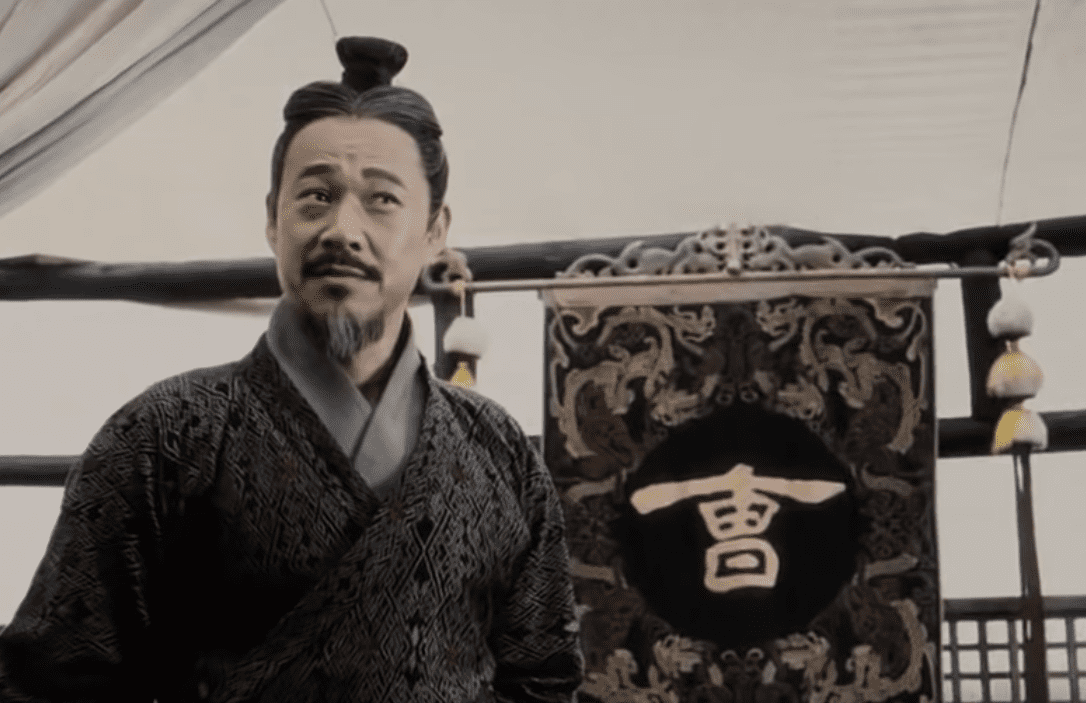 Red Cliff (2008), China Film Group Corporation (CFGC)
Red Cliff (2008), China Film Group Corporation (CFGC)
32. The Workaholic
Not content to rest on his laurels, Cao Cao launched campaigns in Ruxu and Hanzhong. Cao continued to preoccupy himself with such campaigns, even after he became King of Wei in 216.
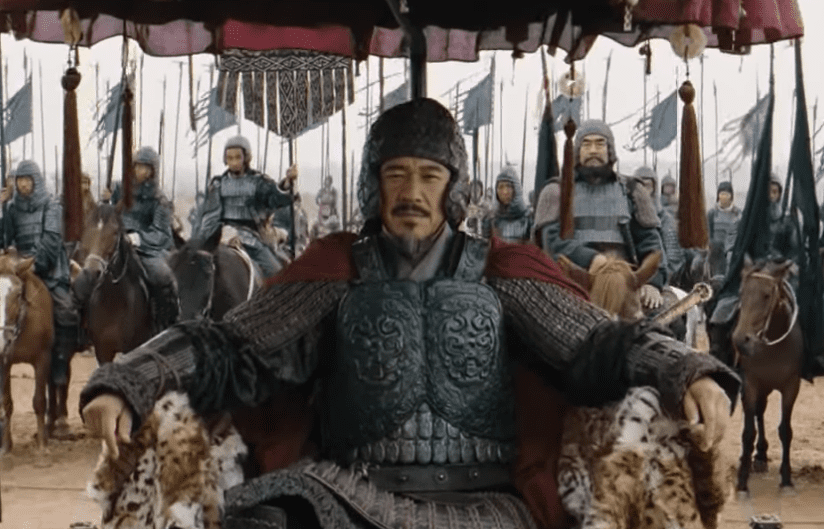 Red Cliff (2008), China Film Group Corporation (CFGC)
Red Cliff (2008), China Film Group Corporation (CFGC)
33. Three’s a Crowd
Cao’s coronation as King of Wei left the region divided into three kingdoms (how romantic): Wei, controlled by Cao; Shu, controlled by Liu Bei; and Wu, controlled by Sun Quan. Neither power could effectively defeat the other, and the country remained in deadlock.
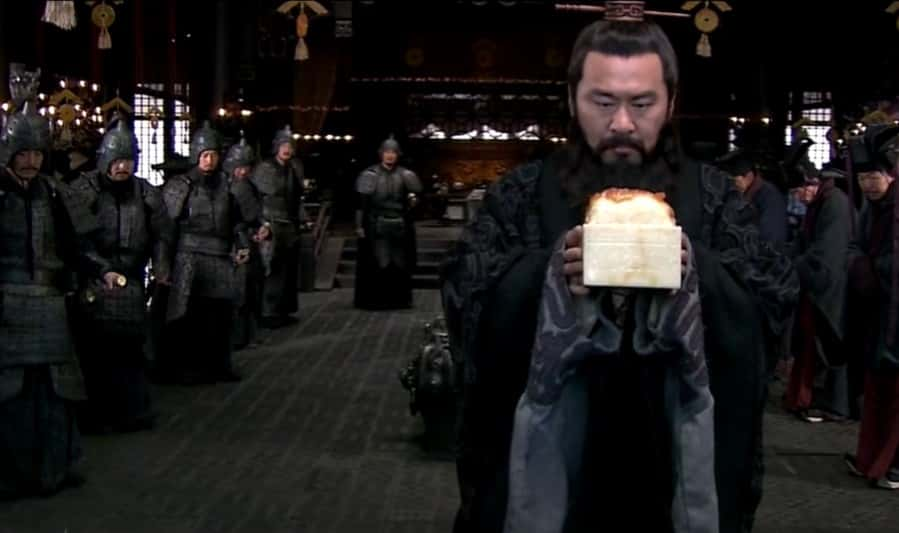 Three Kingdoms (2010), Beijing Gallop Horse Film & TV Production
Three Kingdoms (2010), Beijing Gallop Horse Film & TV Production
34. Life After Death
Cao Cao died in 220, at the age of 65. Upon his death, his son Cao Pi deposed Emperor Xian and declared himself the first emperor of a new state, Cao Wei. In recognition of this new epoch, Cao Pi posthumously declared his father the Grand Ancestor Emperor Wu of Wei.
35. Get Back to Work
Cao died without having unified China. In light of his ongoing campaign, he demanded an austere funeral. His tomb was to have no treasures that might be used to fund the army, and no soldiers were to attend—they had posts to man.
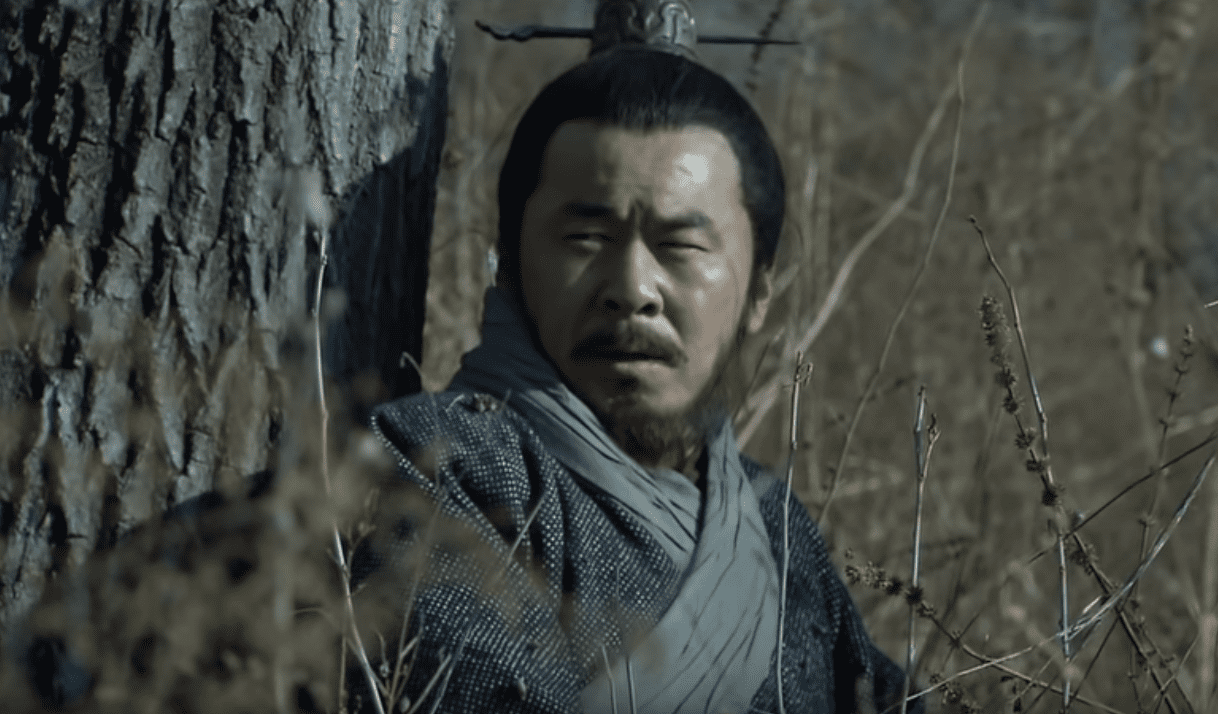 Three Kingdoms (2010), Beijing Gallop Horse Film & TV Production
Three Kingdoms (2010), Beijing Gallop Horse Film & TV Production
36. Revenge
Having established peace in his own territory, Cao invited his parents to come live with him. When they reached the border, however, they were killed by soldiers from the neighboring Xu Province. A furious Cao vowed revenge, and planned an invasion into Xu.
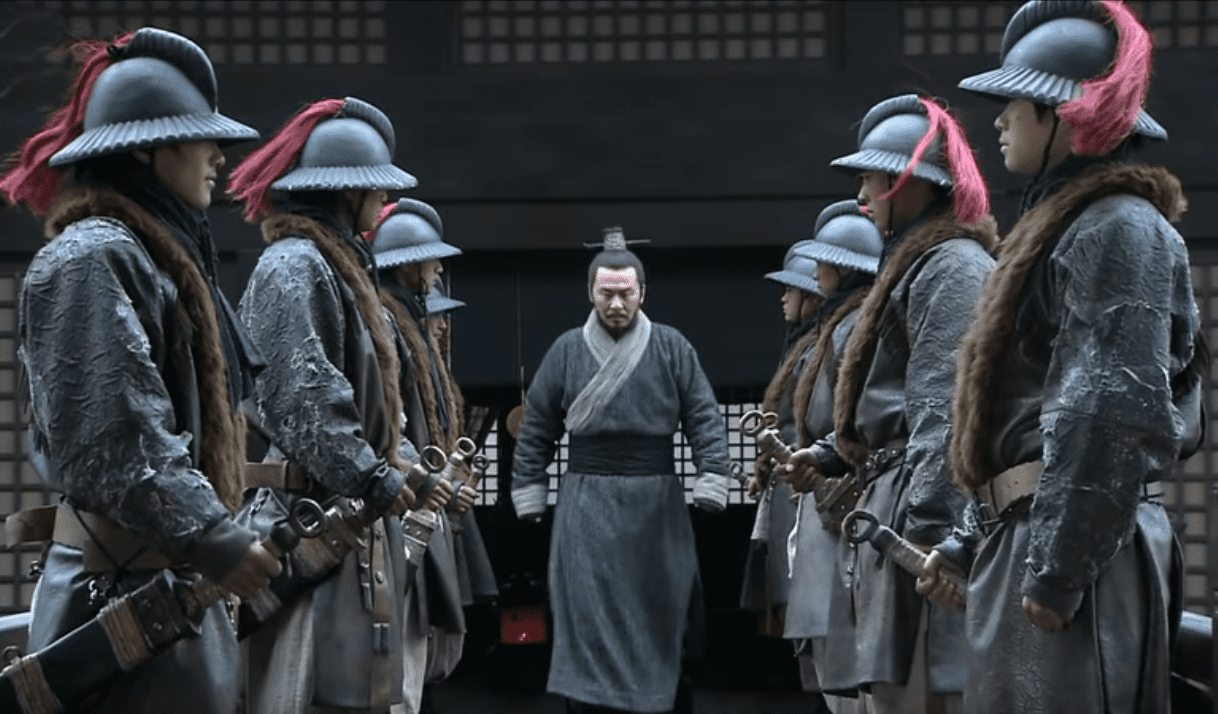 Three Kingdoms (2010), Beijing Gallop Horse Film & TV Production
Three Kingdoms (2010), Beijing Gallop Horse Film & TV Production
37. Possible Motives
There are two versions of the story of Cao Cao’s parents’ death. In one version, the governor of Xu, Tao Qian, sent his soldiers to protect Cao Cao’s parents, but the soldiers killed and robbed them instead. The second casts Tao Qian in a much worse light: this version holds that Tao Qian ordered the hit as retaliation for Cao Cao defeating him in battle.
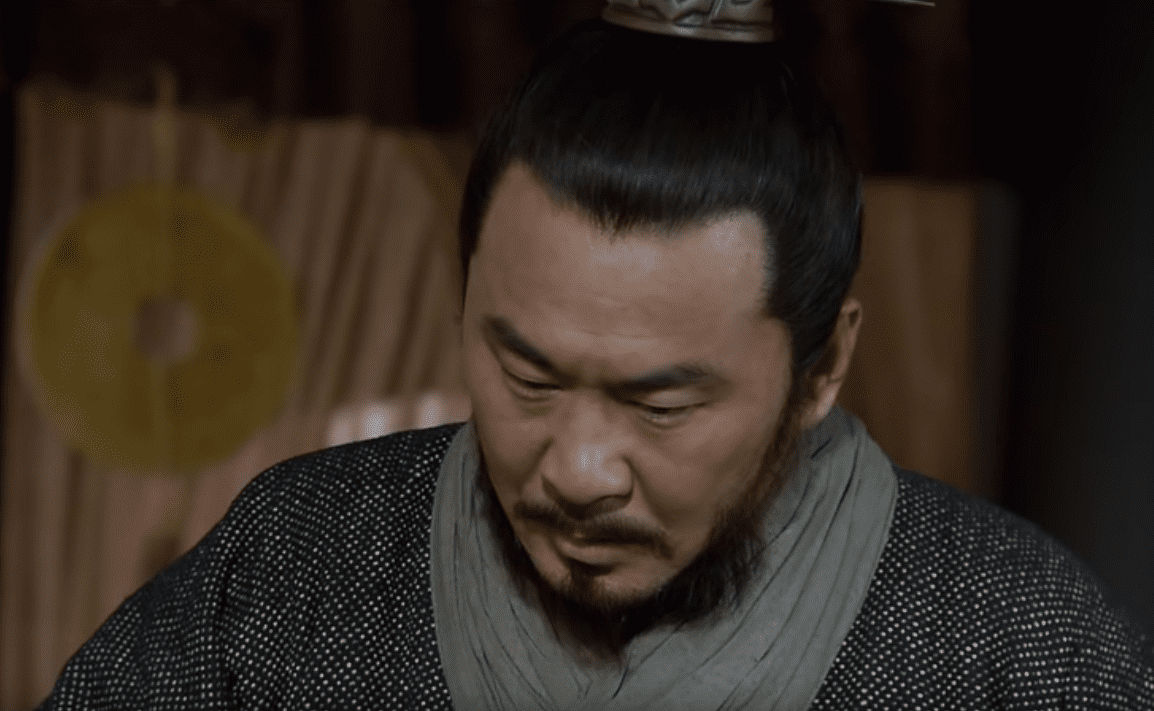 Three Kingdoms (2010), Beijing Gallop Horse Film & TV Production
Three Kingdoms (2010), Beijing Gallop Horse Film & TV Production
38. Cry Me a River
Cao Cao entered Xu Province like a mad dog. He quickly conquered ten cities and killed more than 100,000 people—both soldiers and civilians. It's said that the slaughter was so brutal, corpses stopped the Si River.
 Three Kingdoms (2010), Beijing Gallop Horse Film & TV Production
Three Kingdoms (2010), Beijing Gallop Horse Film & TV Production
39. Round Two
After Cao left the Xu province in ruins, he still wasn’t satisfied because his enemy, Tao Qian, had escaped. Cao launched a second invasion in 194, prompting Tao Qian to beg for help from Qing and Yu Provinces. Despite the additional help, Cao still managed to defeat Tao Qian’s armies.
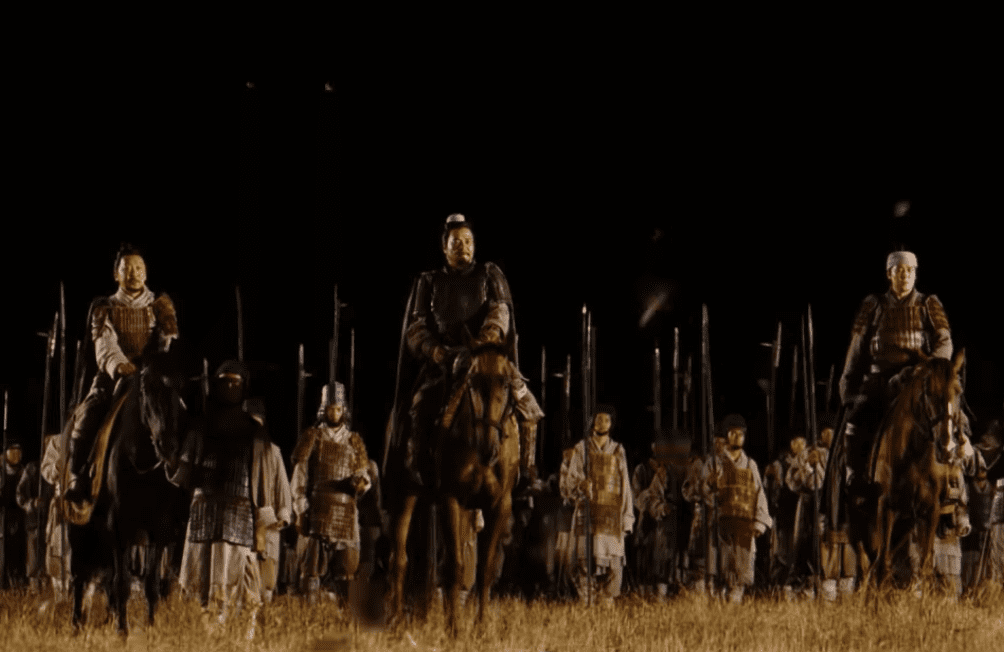 Red Cliff (2008), China Film Group Corporation (CFGC)
Red Cliff (2008), China Film Group Corporation (CFGC)
40. Trouble at Home
Once again, however, Cao Cao failed to bring Tao Qian to justice. While Cao was distracted in Xu Province, one of his generals, Zhang Miao, betrayed him and invited the warlord Lü Bu to come and seize Yan Province for himself. Tao Qian won a reprieve, while a frustrated Cao had to cut his revenging short to go deal with Lü Bu.
 Cao Cao (2014), Emperor Entertainment Group
Cao Cao (2014), Emperor Entertainment Group
41. A Plague Upon Your House
It took Cao Cao two years to finally bring down Lü Bu. By the time he had recovered his territory, a plague of locusts had broken out, causing widespread famine in the countryside. Lü Bu failed to ration adequately, and some of his men had even been forced to resort to cannibalism. Cao Cao defeated a malnourished and understaffed Lü Bu at Juye, and Lü Bu sought refuge in Xu Province.
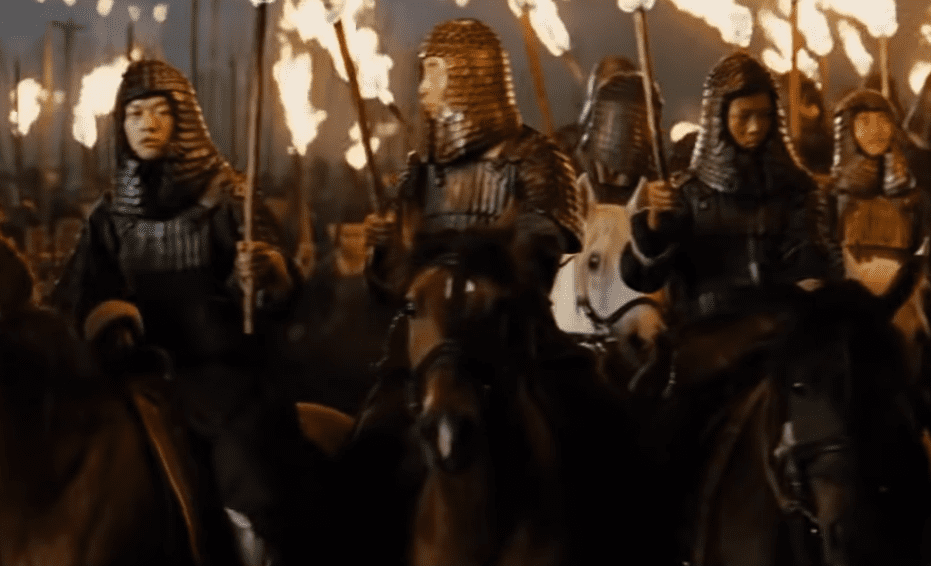 Red Cliff (2008), China Film Group Corporation (CFGC)
Red Cliff (2008), China Film Group Corporation (CFGC)
42. Horse Sense
During his retreat from the Battle of Yan Province, some of Lü Bu’s soldiers actually captured Cao Cao. They did not recognize him, however, so when a general went riding by on a yellow horse, Cao Cao pointed and accused that man of being Cao Cao. The soldiers rode off after the yellow horse, and Cao Cao fled through the city's burning gates.
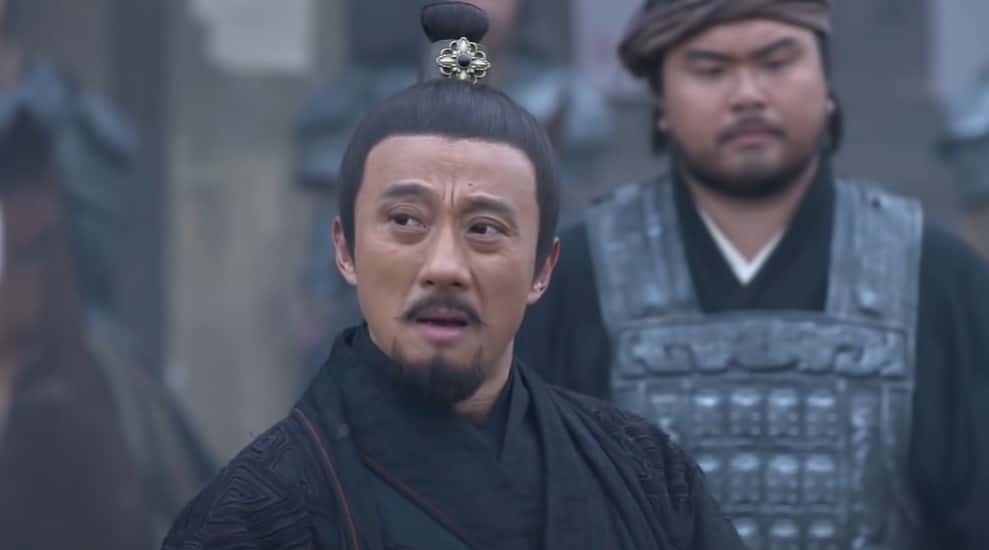 Cao Cao (2014), Emperor Entertainment Group
Cao Cao (2014), Emperor Entertainment Group

